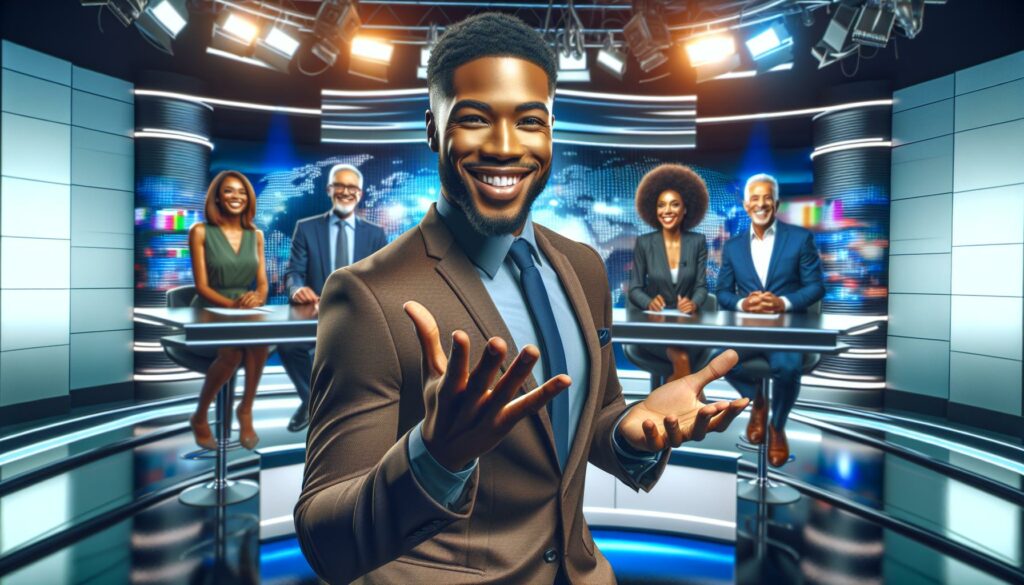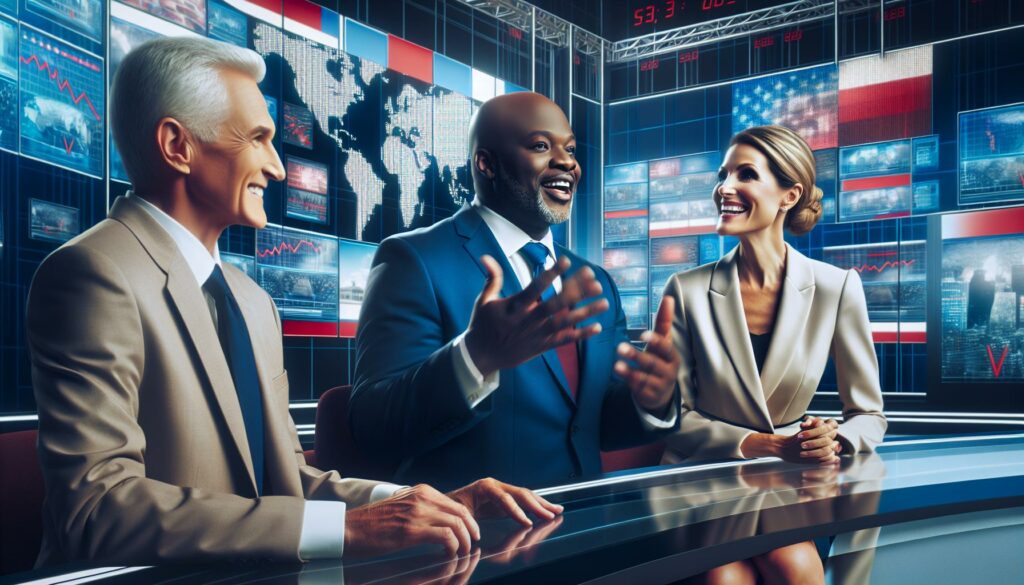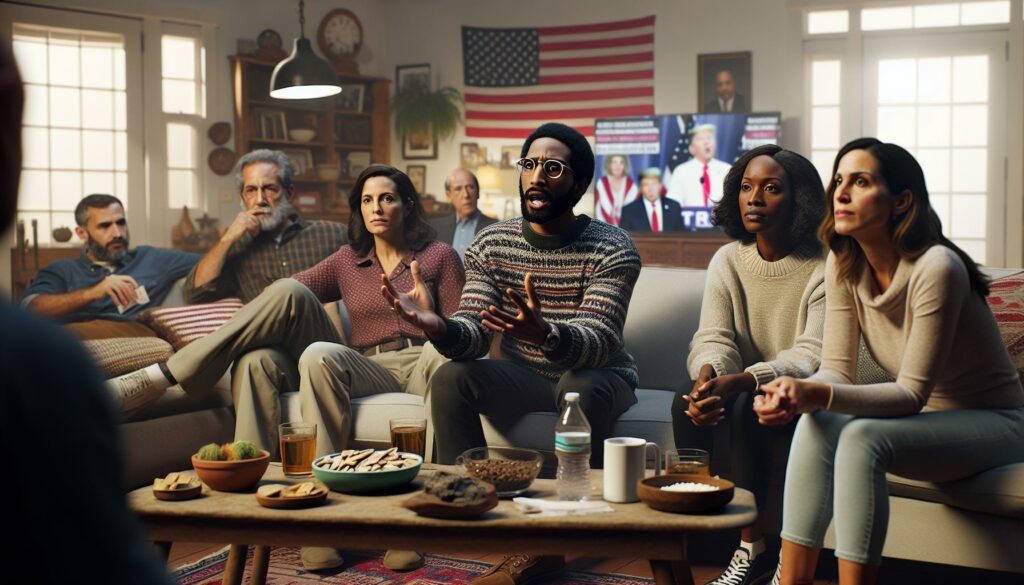Political talk shows have become the modern-day gladiatorial arenas where opinions clash, and humor often reigns supreme. With hosts who juggle wit and wisdom like seasoned performers, these shows transform the serious business of politics into entertainment. They dissect current events while delivering punchlines that make viewers laugh, cringe, and think all at once.
In a world where political discourse can feel like a never-ending soap opera, these talk shows provide a refreshing twist. They invite audiences to engage with the issues that matter most while keeping the atmosphere light enough to prevent any accidental eye-rolling. Whether it’s a satirical take on the latest political blunder or a deep dive into policy debates, these shows are not just about politics; they’re about connecting with viewers in a way that’s both informative and entertaining.
Political Talk Shows
Political talk shows function as platforms that blend humor with serious political analysis. These shows attract diverse audiences by making complex political issues accessible and engaging. Many hosts employ satire as a tool for analysis, often using comedic segments to dissect current events. Prominent examples of these shows include “The Daily Show” and “Last Week Tonight,” which have garnered substantial viewership through their unique formats.
Panel discussions frequently feature experts and commentators who provide varying perspectives. This element fosters in-depth discussions that promote audience understanding of multifaceted political topics. Incorporating social media also enhances viewer participation, allowing individuals to voice opinions and interact live.
Different political talk shows adopt distinct tones, from light-hearted banter to rigorous debates. Evening programs tend to attract viewers seeking entertainment, while morning shows may focus on summarizing the day’s significant news events. Key statistics show that audience engagement remains high, with millions tuning in weekly to catch the latest commentary and interviews.
Emerging platforms are making strides in political talk shows, with podcasts gaining traction. These audio formats allow content to reach listeners on-the-go, making political discussions more flexible. Increasingly, these shows aim to educate while providing entertaining commentary, creating a balance that appeals to a broad audience base. Viewership trends indicate increasing diversity in audience demographics, reflecting a shift in how political discussions are consumed in the digital era.
The Evolution Of Political Talk Shows

Political talk shows have evolved into significant platforms for engaging political discourse. These programs provide a space where humor complements serious discussions, making them accessible to a wider audience.
Historical Context
Political talk shows trace their roots to radio programs in the early 20th century. As television emerged, shows like “Meet the Press” and “Face the Nation” set the foundation for political discussions on screen. These early formats focused primarily on interviews and debates among political figures. Techniques of questioning and presenting issues began to expand, leading to deeper explorations of political subjects. By the 1990s, shows like “The McLaughlin Group” introduced a more combative style, drawing viewers’ attention to contentious issues.
Key Milestones
Several key milestones mark the progression of political talk shows. The launch of “The Daily Show” in 1996 revolutionized the genre by blending satire with news analysis. With the advent of “Last Week Tonight” in 2014, the format further evolved, emphasizing storytelling and deep dives into current events. Online platforms also influenced accessibility, allowing audiences to consume content on-demand. The rise of social media transformed viewer engagement, as platforms fostered direct interaction between hosts and audiences, enhancing the overall experience.
Impact On Public Opinion
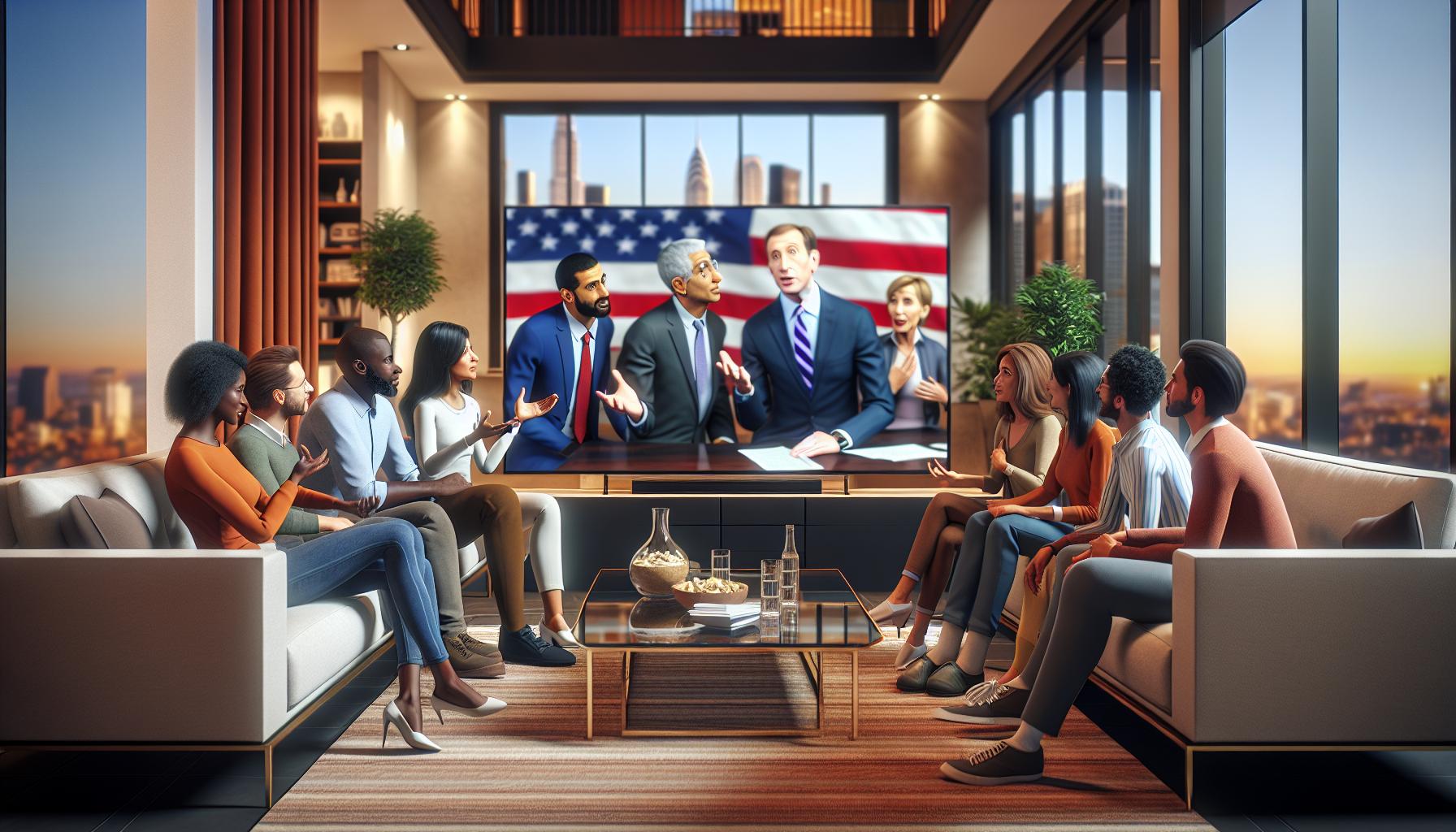
Political talk shows significantly influence public opinion in various ways. Engaging discussions often motivate viewers to reassess their political stances.
Influence On Voter Behavior
Political talk shows shape voter behavior by making complex issues accessible. Viewers often feel more informed after watching these programs, leading to increased electoral participation. For instance, a study from Pew Research indicates that political humor can enhance audience engagement with political processes. Additionally, hosts frequently interview candidates or experts, prompting viewers to reflect on their preferences. Those who watch these programs regularly may demonstrate heightened awareness of candidate platforms. This pattern illustrates how entertainment formats can drive political involvement among audiences.
Role In Shaping Political Discourse
Political talk shows play a crucial role in shaping political discourse across the spectrum. They provide diverse viewpoints, fostering dialogue on pertinent issues. Programs like “The Daily Show” and “Last Week Tonight” blend satire with serious topics, encouraging viewers to engage thoughtfully. Hosts often challenge established narratives, inviting guests who present contrasting opinions. This practice nurtures critical thinking by exposing audiences to different arguments. As a result, these shows enhance public understanding of complex issues while promoting a culture of debate in society. The cumulative influence of these platforms deepens the connection between entertainment and political engagement.
Critiques Of Political Talk Shows
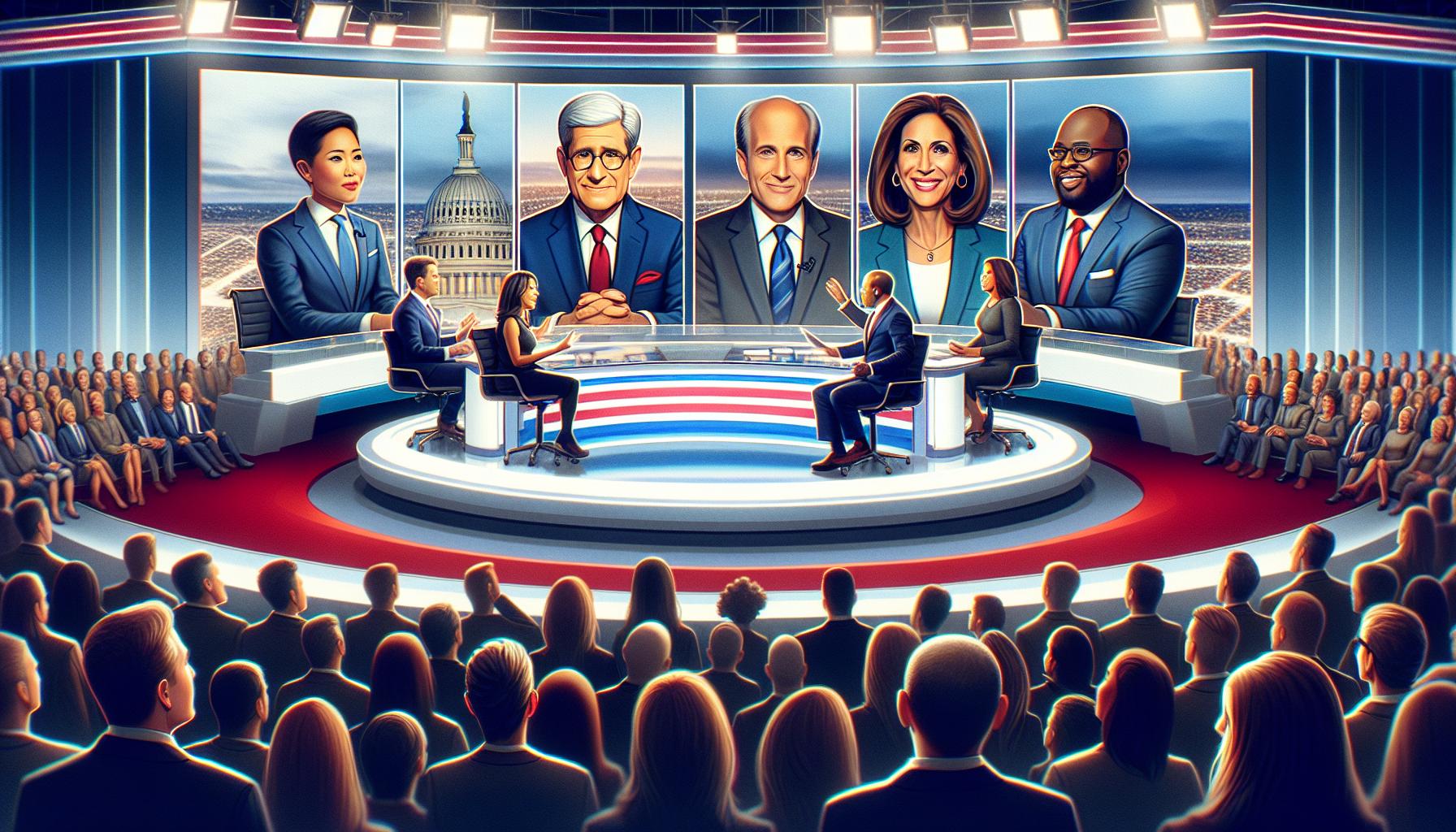
Political talk shows attract scrutiny for their influence on public perception and discourse. Concerns about bias and partisanship dominate discussions surrounding these programs.
Bias And Partisanship
Political talk shows frequently exhibit strong ideological leanings. Hosts often advocate for specific political parties or perspectives, which can skew narratives. Audience members may find it challenging to discern objective information amidst the partisanship. Research shows regular viewers of partisan shows often display heightened polarization. Thus, reliance on these programs may reinforce preexisting beliefs instead of encouraging diverse viewpoints. Challenges in consuming unbiased content lead to a less informed public landscape.
Effect On Misinformation
Political talk shows sometimes contribute to the spread of misinformation. Through humorous or exaggerated portrayals of news, these platforms risk blurring the lines between fact and satire. Viewers may struggle to distinguish verified information from entertainment. Studies suggest audiences consuming satirical content may have difficulty recalling the accuracy of the underlying events. As a result, misinformation can proliferate, potentially influencing political behavior negatively. Awareness of these implications highlights the importance of critical media consumption among viewers.
The Future Of Political Talk Shows
Political talk shows face a dynamic landscape influenced by evolving audience preferences and technological advancements. Viewers increasingly demand content that resonates with their realities and political concerns.
Trends To Watch
Diverse formats emerge, catering to specific audience segments. Online-only shows gain traction, enabling on-demand viewing and spontaneous engagement. Influencer collaborations expand reach, appealing to younger viewers. Content diversity flourishes, incorporating issues like climate change and social justice. Increased emphasis on authenticity garners trust, as hosts reveal personal stories to connect with audiences. Interactive elements enhance user experience, allowing real-time polling and social media integration. Such trends showcase the potential for political talk shows to adapt and thrive in a competitive media landscape.
Potential Changes In Format
Formats likely evolve to maintain viewer engagement. More immersive experiences could include virtual reality segments or live streaming options. Mini-episodes may gain popularity, delivering concise political insights without overwhelming viewers. Regular incorporation of expert panels can deepen discussions and provide authoritative perspectives. Increased focus on local issues allows shows to resonate with community concerns. Collaborating with podcast platforms may create hybrid formats that attract diverse demographics. These potential changes reflect a commitment to addressing viewer needs while staying relevant in an ever-changing media ecosystem.
Landscape of Political Discourse
Political talk shows have undeniably transformed the landscape of political discourse. By merging entertainment with serious discussions they create a unique platform that engages viewers while informing them about crucial issues. This blend of humor and analysis not only captivates diverse audiences but also encourages deeper understanding of complex topics.
As these shows continue to evolve in response to changing viewer preferences and technological advancements they’ll likely play an even more significant role in shaping public opinion. The balance between entertainment and education remains vital as audiences navigate the challenges of bias and misinformation. Ultimately political talk shows will continue to foster dialogue and critical thinking in an ever-changing media environment.

